Search Results
Showing results 1 to 20 of 29
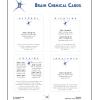
Crossing the Synaptic Gap
Source Institutions
In this neuroscience activity, learners conduct a simulation to demonstrate how multiple incoming signals influence the action of neurons.
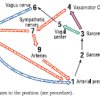
Baroreceptor Reflex Role Play
Source Institutions
In this activity about the baroreceptor reflex (BR) arc (page 123 of the PDF), learners discover the importance of maintaining adequate arterial blood pressure through a role playing exercise.
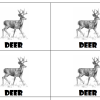
Deer Me: A Predator/Prey Simulation
Source Institutions
In this activity, learners will simulate the interactions between a predator population of gray wolves and a prey population of deer in a forest.

Flocking for Food
Source Institutions
In this outdoor beach activity, learners use a variety of "beaks" (such as trowels, spoons or sticks) to hunt for organisms that shore birds might eat.

Candy Dish Natural Selection
Source Institutions
In this yummy biology activity (page 3 of the PDF), learners participate in a demonstration of natural selection.

Natural Selection in Protected and Unprotected Populations
Source Institutions
In this simulation, learners model two elephant seal populations and how they change over time. Learners start with cards representing a variety of seals.
Fossil Fuels: Facing the Issues
Source Institutions
Through doing these hands-on activities, learners explore the environmental consequences associated with fossil fuel usage.
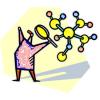
DNA Detective
Source Institutions
This activity is about collecting and analyzing DNA as part of a criminal investigation.
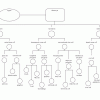
The Game of Life: Stem Cell Edition
Source Institutions
In this activity, learners play a game that models what happens as stem cells differentiate into different cell types.
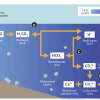
Coral, Carbon Dioxide and Calcification
Source Institutions
In this group activity, learners act out key stages of the "ocean carbon cycle" (also known as the "carbonate buffer system") through motions, rearranging blocks and team tasks.
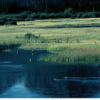
Wetlands
Source Institutions
Learners create a model of a wetland to observe how it absorbs and filters water from the environment.
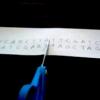
DNA Fingerprinting
Source Institutions
In this forensics activity, learners solve a mystery using “DNA” taken from the scene of the crime.
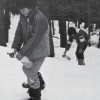
Scent Tracking
Source Institutions
In this wintertime outdoor activity, learners role play wolves tracking their prey by following scented trails.
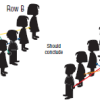
Target Recognition and Synapse Formation During Development
Source Institutions
In this activity about neuron/target muscle recognition (page 44 of the PDF), learners arranged in two rows facing away from each other use string to simulate neural development.

Magnification vs. Resolution: Can you see the flag on the Moon?
Source Institutions
This fun and simple hands-on astronomy activity lets learners explore the difference between telescope magnification and resolution.
Pollution in Our Watershed
Source Institutions
By building a simple watershed with paper and markers and then using a spray bottle to simulate precipitation, learners will understand how pollution accumulates in our water sources, especially from

Wolf Survival
Source Institutions
In this activity, some learners pretend to be wolves, while the other learners pretend to be the prey of the wolf. The goal of the simulation is to have the wolves work together to survive.

Digestive System: A Kinesthetic Lesson
Source Institutions
In this simulation, learners act out each digestive function of the organs, tissues, and cells in the digestive tract.
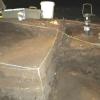
Looking Back Through Time
Source Institutions
In this activity, learners create their own archaeological profiles.
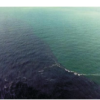
Estuaries
Source Institutions
An estuary is a body of water that is created when freshwater from rivers and streams flows into the saltwater of an ocean.
